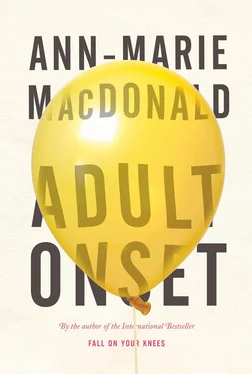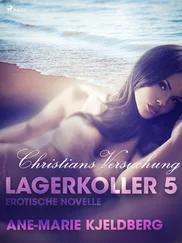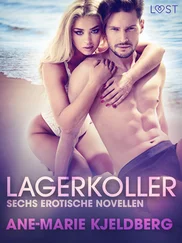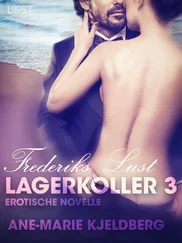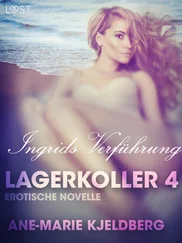What’s more, she grew up on air force bases or in suburbs, both full of young families who reflected the sunny immortality of their early prime-time television counterparts. There were no really wrinkly people around, unless you count Granny on The Beverly Hillbillies . Her parents are the first old people she has ever known. And they still don’t think of themselves as “old.”
She never wanted to be a biological mother. Not only had she zero desire to experience the miracle of childbirth, she figured she’d have a better chance of not screwing up her children if her id couldn’t claim them as flesh and blood. Hil had tried to get pregnant via sperm donated and banked by a friend — they opted not to go anonymous, intending that their child should know as much about its own story as possible. In the meantime, they registered with adoption agencies — most of the world was closed to them, but there were several Canadian provinces and a few American states where they were welcome. Still, the fact remained that, as a two-mom team, they would be at the bottom of the barrel in the eyes of most birth mothers. So, having set in motion the slow wheels of adoption, Hil diligently tracked her temperature and every time it spiked, Mary Rose accompanied her on the pre-dawn trek to the fertility clinic where, with a devotion befitting a station of the cross, they sat in the silent waiting room with the other grey-faced women over thirty-five who’d come for their intrauterine shot of washed sperm. They were put out of their monthly pee-stick misery when they got the call: a pregnant woman in Oregon had chosen them from a stack of Dear Birth Mother letters.
Anna worked as a rigger for the Cirque du Soleil and travelled the world. She hailed from West Virginia but had “knocked about some.” They liked her right away. The three of them spent several weeks together before the birth, exploring the northwest coast. All Anna could or would say about Matthew’s father was that he was Russian. Mary Rose had been aquiver with speculation: Was he an acrobat? A lost Romanov? A member of the Russian mafia? But as soon as she saw Matthew, the only thing that mattered was that he was healthy. They were present for his birth. Anna signed the papers. She pressed cabbage leaves to her breasts to staunch the leaking milk. And went away. She never held him.
They wrote to her, sent her pictures, a plane ticket. Then they lost track of her — that is, she dropped out of sight. They had been warned this was likely. Less than two years later, the sperm bank called: they were going out of business, did Hil and Mary Rose want “the material”? It was the last roll of the dice for a sibling. They got lucky. Hil got pregnant and they got Maggie.
Their donor, Ian, is that modern invention, “Uncle Dad.” He remembers both kids’ birthdays and drops by at Christmas. Hil went to school with him. He is a math teacher in Kitchener — Waterloo who plays guitar. It doesn’t get better than that. They had toyed with asking Mary Rose’s brother, but for one thing it would have killed her parents. And she had killed them once already.
Another reason Mary Rose is uncomfortable with her name is that it isn’t really hers. There was supposed to have been another sister between Maureen and her: a girl, born in Winnipeg. “Other Mary Rose.” Beatific. Blank. She was stillborn and, according to the Catholic Church, her soul went directly from Winnipeg to Limbo — a vast space, itself not unlike a prairie. Mary Rose has always pictured her the size and serenity of a Gerber baby, with closed eyes. Go directly to Limbo, do not pass Go, do not collect the Sacrament of Baptism.
•
“You’re young,” the doctor says. “You’ll have another baby.”
“Maybe even a boy,” she thinks. Inshallah .
When her husband is posted again, they leave the prairie behind, along with the hospital and its smokestack visible for miles. They move east this time, east even of Cape Breton. All the way to Germany.
And she does have another baby. In the fall. Another girl. They call it Mary Rose — after the first one.
Nothing is wrong. The baby is fine but Dolly is very tired. They keep her in the hospital on the base. Move her to a quieter floor.
“Baby blues,” they say. But Dolly knows, any woman lucky enough to have a healthy baby has no right to be blue. Mary Rose — the second Mary Rose — goes home without her. They say it is better that way.
“You’ll be good as new in no time,” says her husband, and she smiles so he will believe he has reassured her.
No time is where she is. This hospital could be anywhere. She could be anyone. Or no one. She lies still, while time goes on around her.
•
The MacKinnons were on their second posting when Mary Rose was born in what was then West Germany. They lived on a NATO air base called 4-Wing, at the edge of the Black Forest, land of big bad wolves and cobblestones; of fairy-tale scenes painted on village walls, and the smell of woodsmoke and cows. Each morning the “honey wagons” clip-clopped past; in the village, women in kerchiefs pulled braided bread fresh from the ovens and were free with schokolade für die Kinder . Roses grew wild and the Rhine flowed fat and peaceful. In Munich there were gaps between buildings — interior walls exposed, tattooed with absence: the outline of a picture frame, a bed-head, a crucifix. Sunlight shattered the dome of the Frauenkirche, in Cologne a street sign, Jüdengasse … “Don’t dwell on it,” said Duncan. “Think nice thoughts,” said Dolly.
They drove the length and breadth of free Europe with their children, their tent, and their big Canadian sense of adventure. They were seeing the world, thanks to a world war. And they were helping to heal that world just by enjoying it, visiting castles and fountains, the Vatican and the Riviera, canals from Venice to Amsterdam. They picnicked in the Alps — Dolly panicked at the hairpin turns and Duncan laughed until the sun glinted off his gold tooth. At a lookout on a winding mountain road, they emerged from the VW Beetle to stretch their legs and survey the invisible border with “the East,” while he explained to the children: The picturesque farmhouses on the other side of the valley with their thatched roofs looked the same as the ones on this side. But it was a grim mirror, a ghastly parallel world: it was Communist . A hiss in the very word.
Mary Rose knows she cannot possibly remember all this; still the scenes are vivid in her mind, part of the family lore she imbibed from her sister and from her parents’ reminiscences over the years. Like Maureen’s childhood version of Mary Rose’s arrival home from the hospital: “I was so worried you were going to be born dead like Other Mary Rose, and Mummy didn’t come home for ages because she was so tired from having you. Daddy told me you were beautiful and I pictured a princess with long blond hair. You had curly black hair like Groucho Marx and your face was red as a tomato when you cried.”
“No wonder you hung me over the balcony.”
“Mary Rose! I have no memory of that!”
Which has always been tantamount, according to Mary Rose, to an admission of guilt. She has yet to tire of the reliable rise it gets out of her otherwise unflappable sister.
•
By day the sky is ripped with jets and split with sirens rehearsing for a hot war that never comes. But at sunset, the air is full of birdsong. He wraps the baby in a blanket and takes her onto the balcony of the apartment. The sun is a hot, huge stain, red-streaked yellow, powerful, peaceful and slow. They are on a level with the treetops. Close to the building, a row of lindens is changing colour, but beyond the uniform lawns stands the Black Forest, dense with evergreens.
Читать дальше
